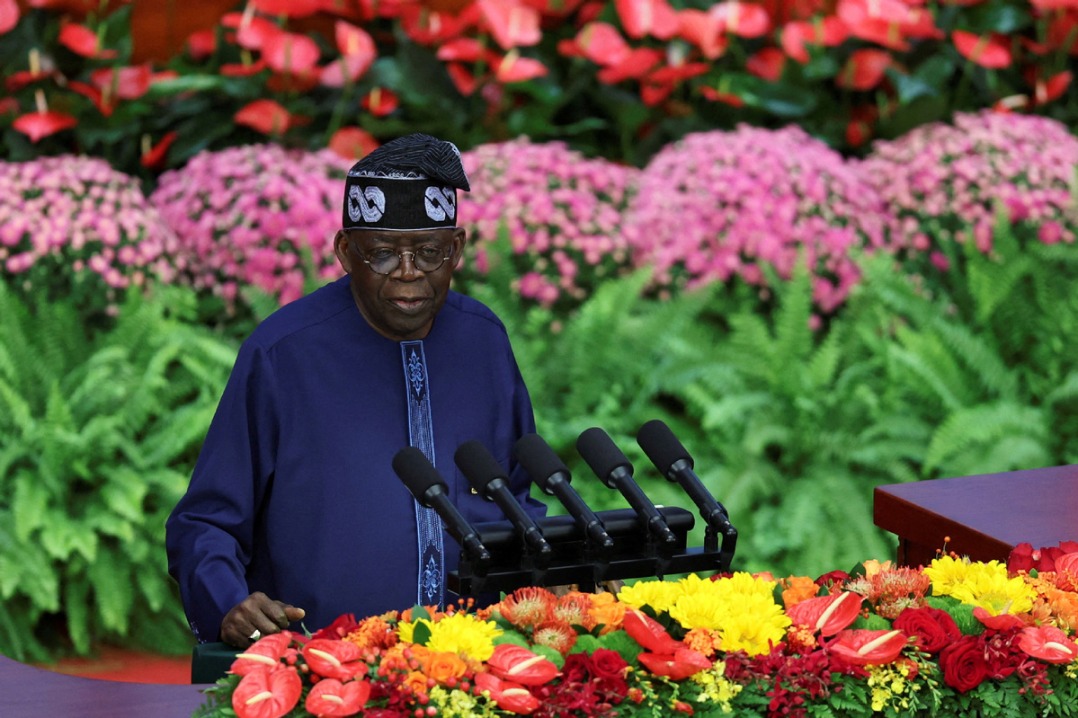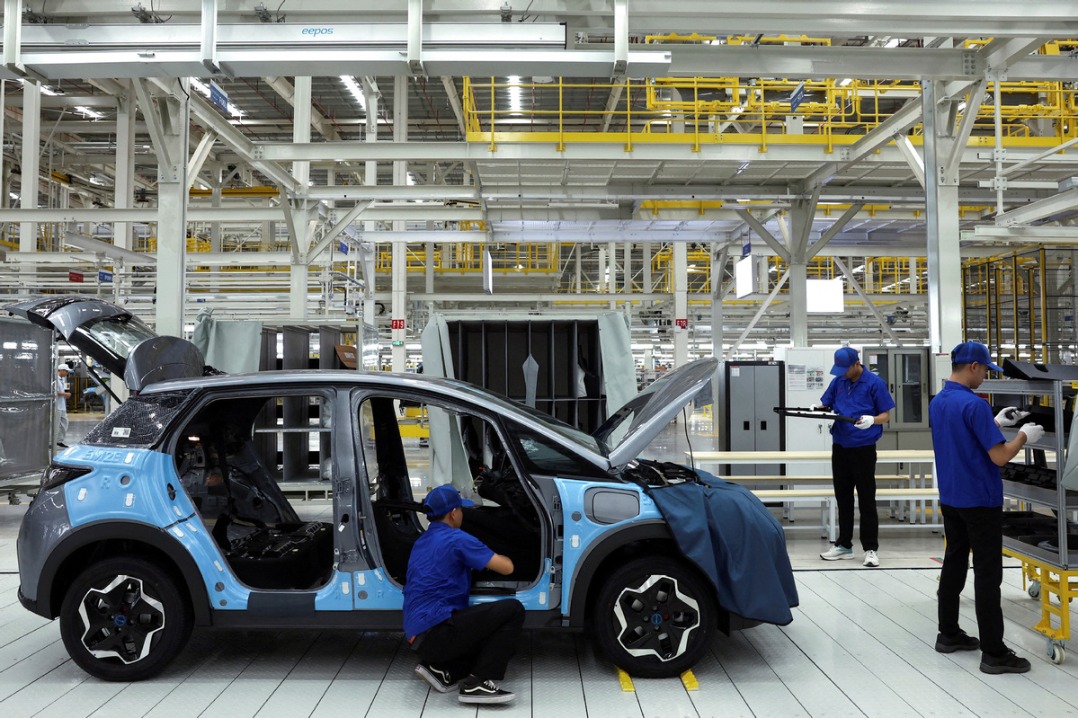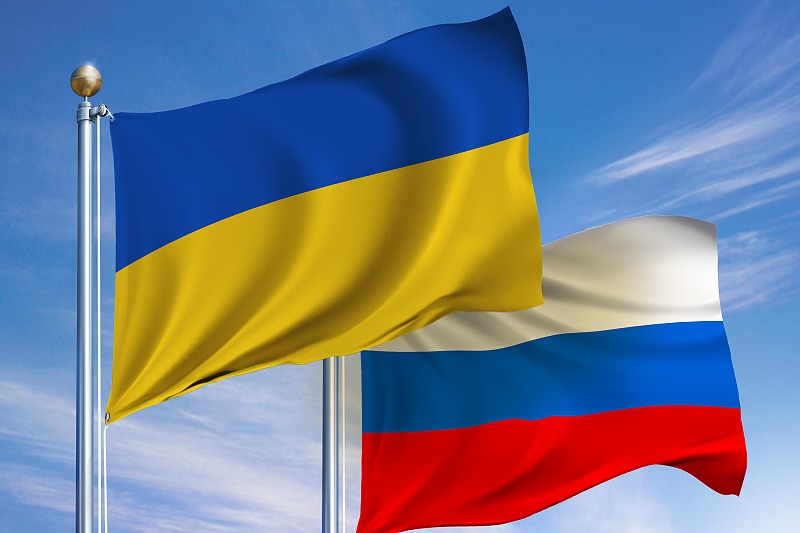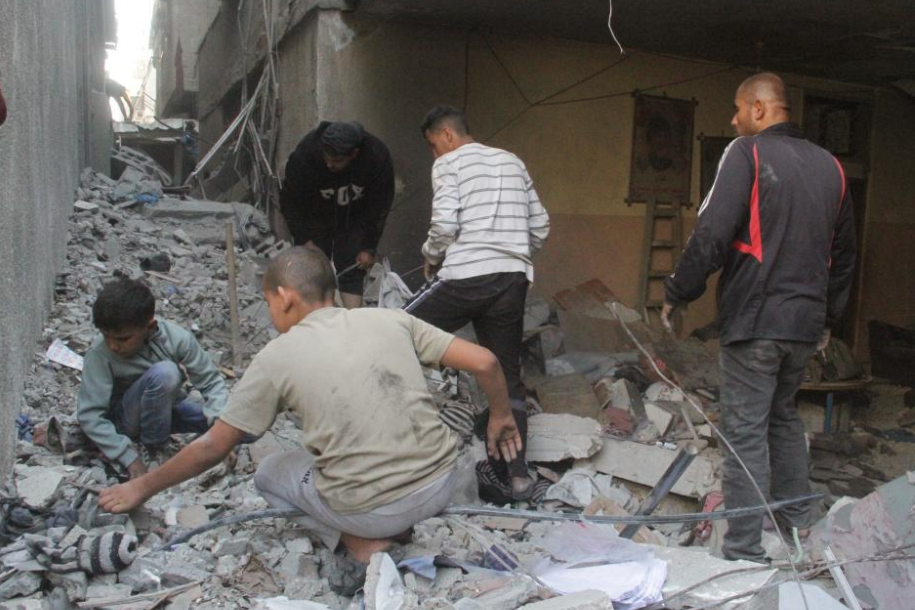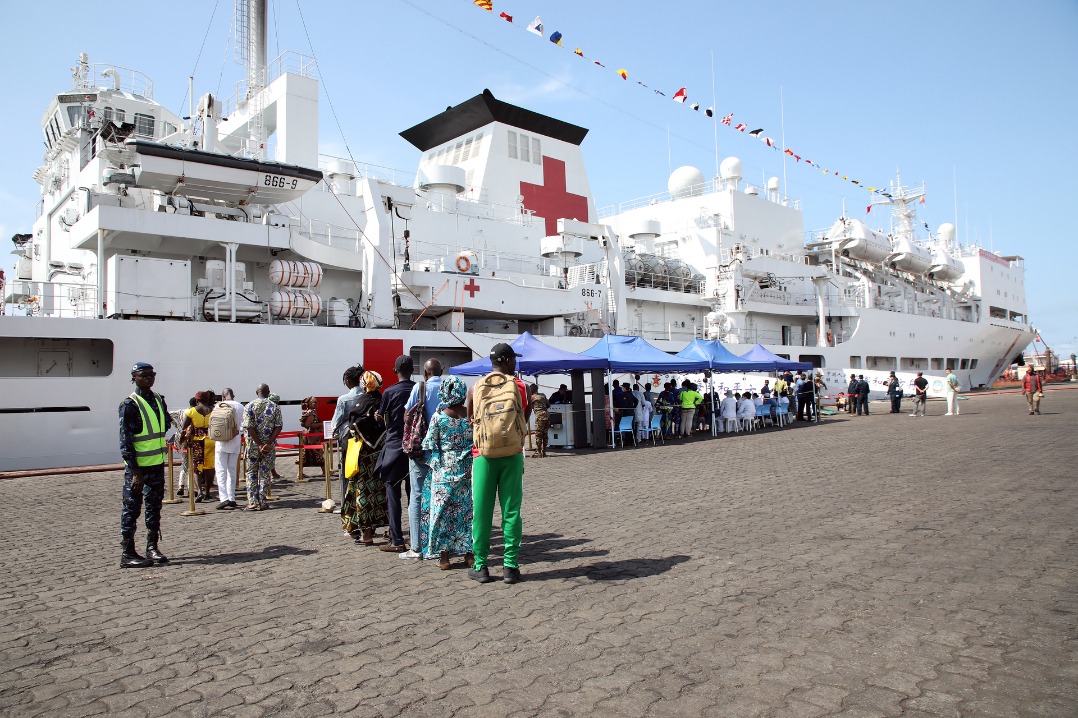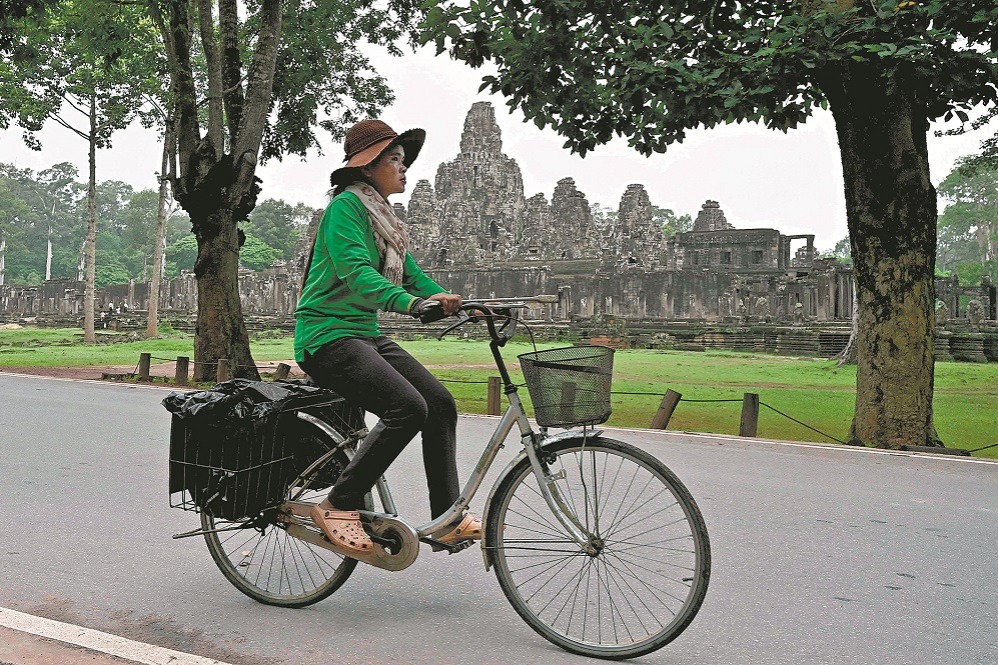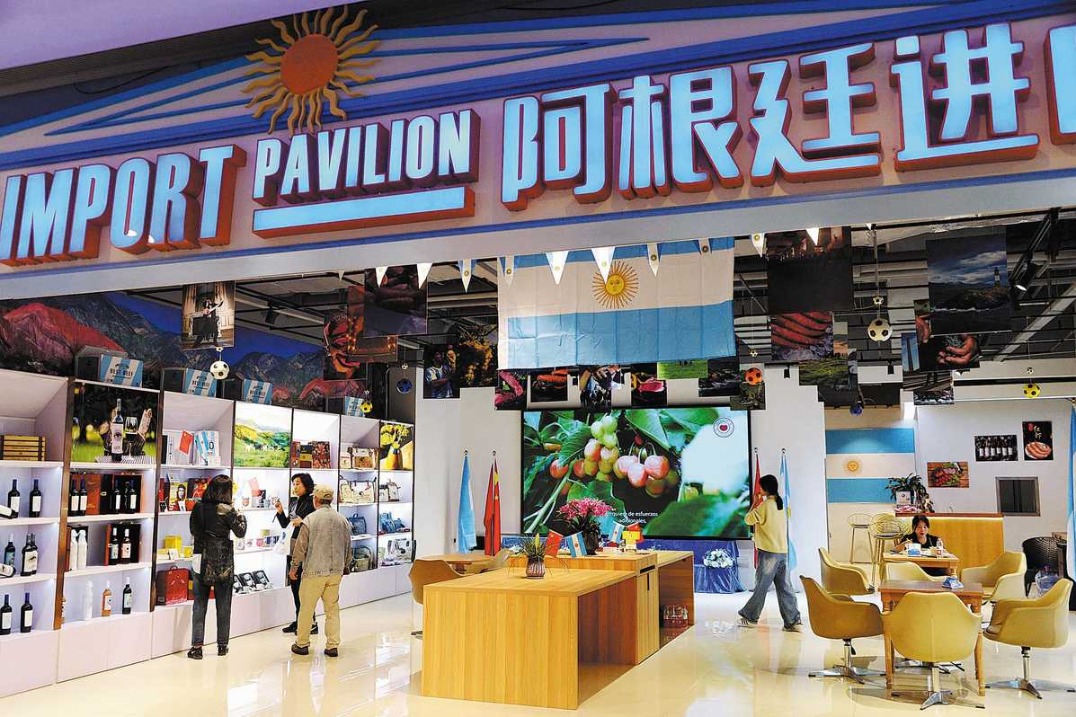Forum fosters ties between China, Africa
Experts laud FOCAC's role in promoting resilience, sustainable development

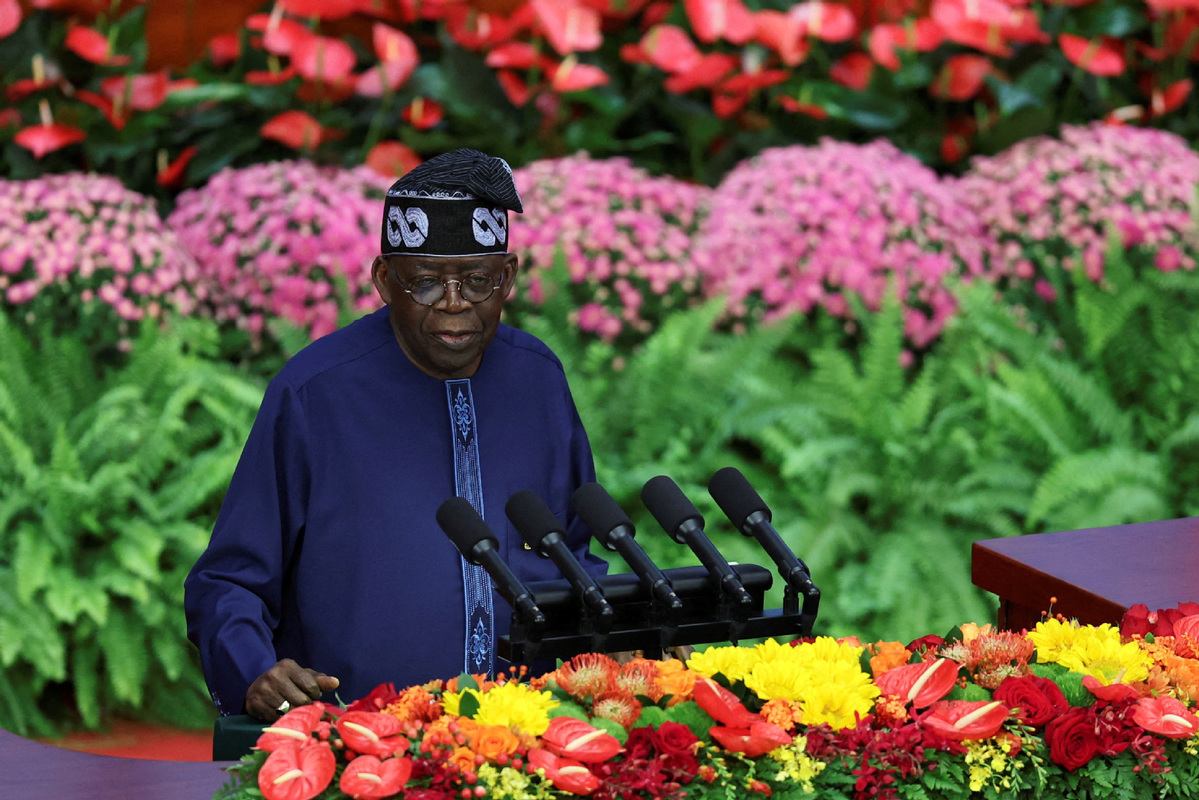
The China-Africa relationship is poised to grow to new heights under the Forum on China-Africa Cooperation framework, affecting not only the two parties but also the global arena, experts say.
They also describe the framework as key in realizing the modernization of both China and Africa, which is expected to reshape the world.
Wang Wen, dean of Chongyang Institute for Financial Studies at Renmin University of China, said FOCAC is "a great platform" that strengthens existing cooperation while fostering future growth and shared aspirations.
Speaking at a recent webinar, Wang said that over the past 24 years since its establishment, FOCAC has seen spillover effects of China's development model.
During this period, Chinese enterprises have constructed and renovated more than 10,000 kilometers of railways in Africa, as well as nearly 100,000 km of highways and almost 1,000 bridges, he said.
This is in addition to 1,000 ports, 66,000 km of power transmission lines, and 150,000 km of communication networks in various African countries.
The framework has also seen China establish multiple agricultural technology demonstration centers in Africa, promoted more than 300 advanced and applicable agricultural technologies and achieved an increased amount of agriculture products imported from Africa for seven consecutive years, Wang said.
With a huge market of nearly 3 billion people, China and Africa have inexhaustible potential in infrastructure, agriculture, manufacturing, internet, transportation, tourism, among others, Wang added.
Going forward, he pointed out that China-Africa cooperation will face some challenges, such as interference from the West, but urged both parties to have confidence and remain focused on their agenda.
Mushahid Hussain, chairman of the Pakistan-China Institute and president of the Pakistan-Africa Institute for Development and Research, applauded China's consistent assistance to many developing countries over the past decades.
Soon after the founding of the People's Republic of China in 1949, it was one of the first countries to lend a helping hand to its third-world brothers in Asia, including Pakistan, Hussain said.
In Africa, China built the Tazara Railway in the 1970s, linking Tanzania with Zambia, and supported liberation movements in Zimbabwe, South Africa and Namibia, he said. It was also at the forefront of the freedom struggle, as well as the struggle against racism, racial discrimination and Western hegemony in Africa.
China's relationship with Africa is not transactional, temporary, or based on conditionality; it is based on peaceful development, win-win cooperation and inclusivity through the Belt and Road Initiative, Hussain said.
On the contrary, the United States and other Western powers still view Africa in a Cold War context, where they try to intervene ostensibly on counterterrorism, but are promoting their own interests, he added.
"Chinese modernization is an example of the peaceful development of socialist modernization of harmony between nature and humanity, as opposed to the militarization promoted by the West, where they talk of control coercion, use of force and extraction," he said.
Assessing threats
Charles Onunaiju, director of the Center for China Studies in Abuja, Nigeria, said it is time for Africa and China to reflect on issues relating to strategic resilience and on how to maintain cooperation, as well as objectively assess strategic vulnerabilities and threats of the evolving China-Africa cooperation.
"This means reflecting on the wonderful trends that have occurred between China and Africa in the past 24 years and the outcome of the recent FOCAC summit (in Beijing)," Onunaiju said.
He highlighted the need to further develop capacity, which is key for sustainability, through interrogating the nature of the state, the social system and the processes in which the two partners have embarked on.
"We should see China-Africa cooperation as an important contribution for us to (address) the challenges Africa (faces) in terms of strategic resilience and our obvious weaknesses and strategic vulnerabilities," he said.
Mahdi Gulaid, a member of Somalia's Parliament and former deputy prime minister of Somalia, said that with aligned goals, mutual respect and a shared vision, China and Africa stand as a powerful example of what global partnership can accomplish.
The China-Africa partnership is not just economic, but also deeply rooted in mutual respect and the pursuit of common goals, Gulaid said, adding that FOCAC has brought infrastructure development, healthcare and digital progress across the continent.
The three initiatives of Global Security, Global Civilization and Global Development proposed by China align closely with Africa's development agenda, he said.
















